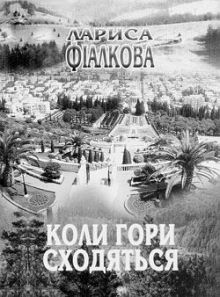Since the late 1990s, some 300,000 residents of Ukraine have become citizens of Israel, forming a Ukrainian diaspora that has its distinctive features as compared with those in Eastern Europe or the Americas.
Among these immigrants are intellectuals in the technological, artistic, and scholarly fields, former residents of Ukraine’s towns and cities. One of them was Larysa Fialkova, a literary critic who left Kyiv in 1991. When she was a graduate student, her research supervisor was the renowned scholar Yurii Lotman. She comes from a Russian-speaking Jewish family. Her grandfather Yefrem Liechtenstein was a distinguished therapist in Kyiv, a lecturer at the Medical Institute, and the author of the textbook on medical deontology “Remembering about the Patient.”
While she lived in Kyiv, Fialkova spoke or wrote little Ukrainian, although as a young girl she was fond of children’s evening shows “Grandfather Panas’ Tales” and “Nightie Night, Children.” She studied the Ukrainian language and literature from grade 2 in school and then at the Pedagogical Institute’s Philology Faculty. She read the journal Vsesvit and went to the Ivan Franko Ukrainian Drama Theater. Later she published a review on Peter Rushworth’s “Kindergarten” published by Vsesvit and an article on Mikhail Bulgakov in Literaturna Ukraina. Larysa left Ukraine before it proclaimed its independence, so she cannot be registered with the Ukrainian consulate in Israel.
Fialkova recalls: “At first they ridiculed me in Israel for writing that I have a command of Ukrainian as I wrote in my application forms. They stopped laughing after I visited Kharkiv to attend a Congress of Ukrainists as a member of the Israeli delegation headed by Dr. Wolf Moskowitz of the Hebrew University of Jerusalem. After I made my presentation at the congress, one of the Ukrainian lecturers asked me, ‘Where has this lady from Israel learned Ukrainian so well?’”
At this point it seems worth mentioning the language background. Every individual lives in a certain language environment, even though s/he may not use this environment’s actively in speech and writing. Nevertheless, this individual absorbs elements of culture and is a passive ‘carrier’ of this language. When circumstances change, this person may start using it actively.
Fialkova’s first job in Israel was with a folklore archive. There she started dealing with Russian and Ukrainian emigre folklore. Her ties with Ukraine manifested themselves in her presentations at congress and conferences, then in the publication of her book “When Mountain Meet: Sketches on Ukrainian-Israeli Folkloric Relations” (Avtograf Publishers). This book is about the place of Ukrainian culture in present-day Israel. There were two reasons behind this publication: nostalgia and the language issue. She teaches Russian literature and Slavic folklore in Hebrew at the University of Haifa and writes most of her research papers in English. She considers Russian and Ukrainian to be her native languages.
Fialkova’s new publication consists of a foreword, three chapters, and an afterword. The foreword speaks about how Israelites collect and study folklore. The first chapter is dedicated to the image of Jerusalem in Ukrainian folklore; the second one, to Ukrainian folklore in Israel (Oleksa Dovbush in European culture; enigmatic Ukraine; stories about catacombs, hidden treasures, ghosts; jokes about radiation). The third chapter tells about the formation of a new Ukrainian diaspora in Israel. The afterword is entitled “A Story Told by a Former Resident of Kyiv” and tells about the author’s way to Israel. This publication boasts interesting photos and cultural data, including a story about the literary periodical Sobornist that has been published since 2005 by the Israeli Federation of the Writers’ Unions. Fialkova considers the emigres’ destiny and poses a question that we have to answer together: “Is Ukraine interested in preserving its cultural resource in Israel and supporting its former citizens?”







